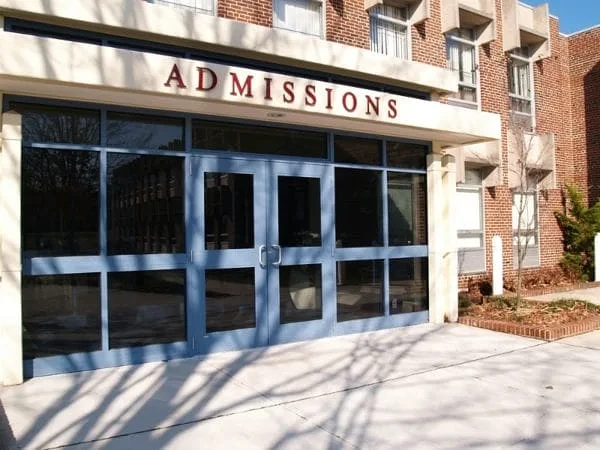This post is from Grown and Flown.
by Laurén Carter | Estimated Reading Time: 3-4 minutes
This is not to say you are doing a lousy job, and this is by no means a criticism. I want you to recognize these potholes and pitfalls because you might not see that you are even about to make a misstep — until it happens.
7 mistakes smart families make time and time again
1. You are not objective about your teen’s chances of admission
Partner with your school counselor and ask them for their unbiased feedback on your teen’s college list. Many high schools offer college and career data platforms (Naviance, Scoir, etc.) as an additional resource for you. This is a situation when the likelihood of acceptance will not be something you can identify as your judgment is clouded.
Hint: If a college admits 20% or fewer applicants, admission is highly selective and unpredictable. This college is a reach school for everyone. Trust me.
2. The college list is too long
If you have a teen applying to 20 colleges and each college has three supplemental essays — do that math on that one! They would need to write 60 detailed and compelling pieces — probably between September to January — to excel in their school work and balance their extracurricular commitments. Often I have found that when a senior applies to a long list of colleges, they need to do more research and soul-searching on the front end before finalizing the list. The ideal size for a college list is 8-10, including 2-3 likely and 3 target schools.
Hint: If your senior struggles to write the “Why do you want to attend our college” supplemental essay, that is a tell-tale sign that your teen needs to investigate that option further, or it needs to be removed from the list entirely.
3. You discuss the college process with your teen every waking moment
Try to have a weekly check-in instead of bombarding your teen 24/7. During your weekly chats, you can get all the updates you seek and offer support and encouragement. The best part is your teen will be less on edge and more open to speaking with you during those non-meeting times, as they know you won’t be bringing up the status of their Common App essay. You’re welcome.
4. Your approach to recommendations is out of whack
Don’t flood your teen’s applications with unnecessary and repetitive letters. Don’t ask the friend of a friend’s neighbor’s cousin’s daughter to write a letter of support for your teen at their alma mater. More is not better in this situation. If you believe your teen’s application would be incomplete without this additional letter from someone who knows them exceptionally well, you may consider it.
5. You only visit the reach (aka the most competitive) schools on your teen’s college list
Talk about stress. Please try to visit all the colleges on your teen’s list, and your teen will not only be more invested in those places but they will also be filled with insight for crafting personalized and thoughtful applications.
Hint: Virtual visits are visits! So even if you cannot get your teen’s feet on the campus, encourage them to see the college online. Look at the virtual offerings such as information sessions, faculty panels, student chats, and open house programs.
6. You cannot help but criticize a college because of what you know about it — from 30 years ago
Life is not frozen in time, so colleges are ever-evolving. Whether it is the academic majors, the physical spaces, or what the surrounding area offers, try to be open-minded and investigate college options that you might have unfavorable thoughts of because of what you remember from back in the day — times change.
7. You don’t consider cost during the research or application phase
I plan to hit the lottery, and you may too. Unless those numbers have come through, consider affordability when your teen is preparing for college and that they are aware of any financial parameters. Complete any required financial aid forms promptly, and feel free to connect with financial aid officers at colleges of interest if you need additional assistance. If cost is a factor, inform your school counselor that your teen is seeking scholarships.
Hint: Go to MyInTuition.org for a personalized (quick) cost estimator.
This is all to say — life is not perfect, and neither are you. Give yourself some grace as you maneuver this process. Ask for help and guidance from professionals. Talk with your teen. Be supportive. Tell your teen that you are proud of them regardless of the outcome. Just think — out of all the mistakes to be made, at least you won’t be making these!




